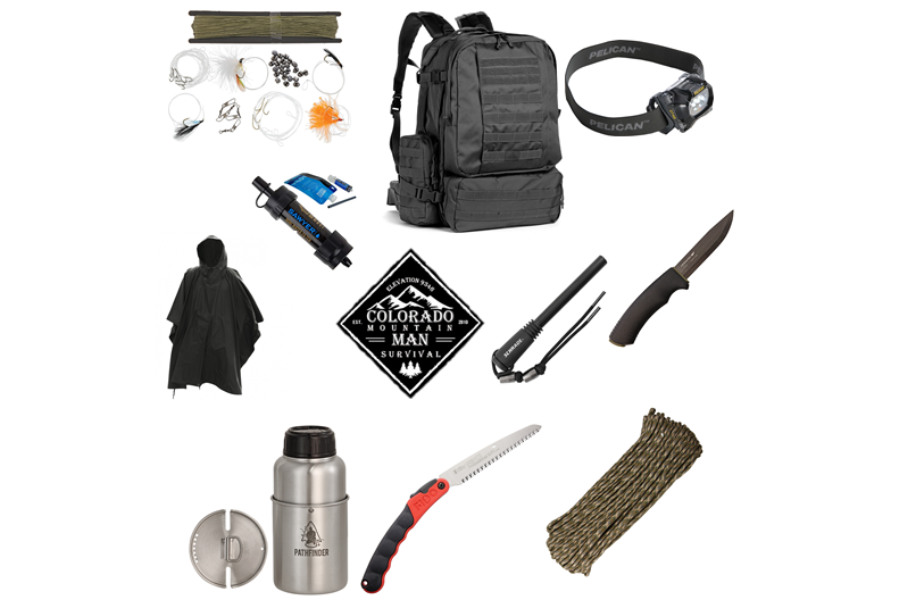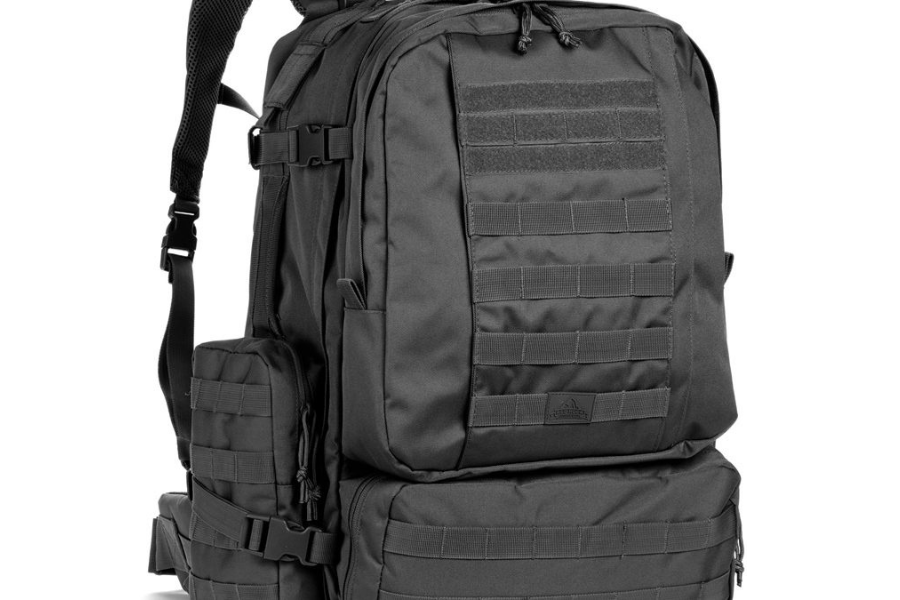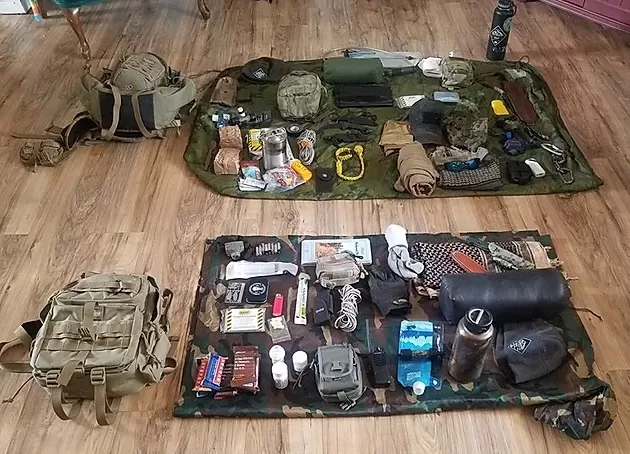Recommended Gear List For Courses
Colorado is a cold weather climate most of the year and with our survival school at 9400 feet, it can get frigid at night, even during the summer....

Humans are no longer naturally equipped to thrive in the wilderness unaided. Our greatest survival asset is our brain, which has allowed us to innovate, creating tools and harnessing fire to overcome the challenges of nature.

Our ancestors, masters of resourcefulness, relied on primitive tools to thrive in challenging environments. Over generations, we’ve refined these tools, but modern life has distanced many of us from the knowledge of how to create them. When venturing into the backcountry, it’s important to bridge this gap by bringing the right gear with you..
Survival situations can arise unexpectedly, and having the right tools can be the difference between a manageable experience and a dangerous ordeal. Below, we elaborate on 10 must-have items that will significantly improve your odds of staying safe and comfortable in the wilderness.
A dependable knife is the cornerstone of survival. A full tang fixed blade is durable, reliable, and versatile, ideal for cutting, carving, chopping, and even self-defense.
When choosing a knife, look for one with a sturdy sheath and a comfortable grip to ensure safe and effective use.
Fire is life in the wilderness. It provides warmth, cooks food, purifies water, and keeps predators at bay.
Practice using these tools before heading out to ensure you’re prepared to build a fire in various conditions, including wet or windy environments.
Dressing appropriately for the weather is vital for regulating your body temperature and preventing hypothermia or heat exhaustion.
Always check the forecast and pack clothing that can adapt to changing conditions.
Sudden rainstorms are common in the backcountry, and getting wet can quickly lead to hypothermia, even in mild temperatures.
Wet is cold! Cold is dead!
Choose lightweight and packable rain gear to ensure you’re protected without adding bulk to your pack.
Water is essential for survival, and a metal water bottle or pot serves multiple purposes.
Bring a container with a wide mouth for easier filling and cleaning.
Accidents can happen, even to the most experienced adventurers. A well-stocked medical kit is critical for treating injuries and preventing infections.
Regularly check your kit to replace expired items and ensure it’s ready to go when you are.
While water sources may seem pristine, they can harbor bacteria, viruses, and parasites.
Always have multiple ways to purify water, as hydration is critical for survival.
Protection from the elements is necessary for staying warm, dry, and safe.
Choose a shelter system appropriate for the season and terrain you’ll encounter.
Navigation tools are indispensable, even in the age of GPS.
Always carry a topographic map of the area and a compass, and keep them accessible in your pack.
While you can survive weeks without food, having access to calories keeps your energy and morale high.
Include lightweight cooking gear and utensils to prepare meals efficiently.
Packing for survival is about balance. While it’s important to have the tools listed above, it’s equally critical to ensure your pack isn’t so heavy that it hinders your mobility.
Practice using your gear before heading out, and keep refining your setup to suit your specific needs and environment. By bringing these essentials, you’re not only prepared for the unexpected but also empowered to handle challenges with confidence and skill.
Stay safe, stay prepared, and embrace the adventure!

Colorado is a cold weather climate most of the year and with our survival school at 9400 feet, it can get frigid at night, even during the summer....

11 min read
Bug Out Bag: Things to Consider Many factors come into play when you are building a bug out bag. First thing you need to consider are your...

What’s in My Survival Kit? A Practical and Honest Guide to My Get Home Bag Let’s get this out of the way: I don’t do Bug Out Bags. Why? Because most...